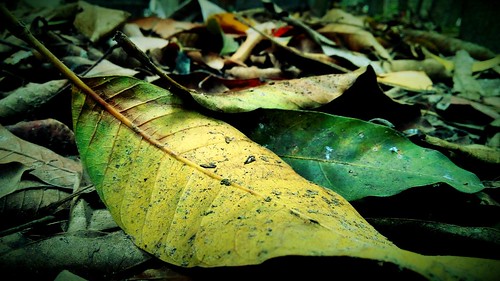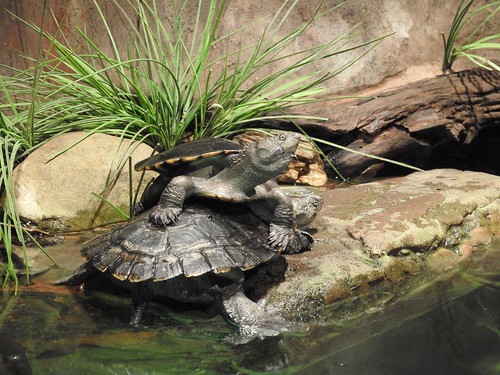Er in the kidneys of adenine-treated rats compared to the kidneys of controls, GA or GA+adenine. GA decreased the superoxide production to control levels. DNA double strand breaks also were significantly increased in the kidney by adenine treatment (Fig. 6C). GA reduced this effect significantly, but was not able to restore control levels. Table 2 shows the concentrations of GSH and TAOA, as well as the SOD activity in the four groups. Adenine treatment significantly reduced the values of these analytes compared to controls and GA-treated rats (P,0.05). GA significantly ameliorated these actions in adenine-treated rats.Effect of Gum Arabic on IL-The concentrations of the anti-inflammatory cytokine IL-10 were not detectable in rats treated with water (controls) and adenine (Fig. 5). However, the concentration of this cytokine was significantly increased in the GA-treated rats (P,0.001) compared to the control and the adenine-treated rats. In rats treated with GA and adenine, the concentration of IL-10 was not significantly different from those in rats treated with GA alone.DiscussionThe worldwide incidence of CKD is increasing [32], but access to renal replacement therapy, either transplantaion or dialysis isGum Arabic and Adenine Chronic Renal FailureTable 1. Effect of treatment of rats with gum arabic (GA, 15 w/v in drinking water), with or without adenine in feed (0.75 w/w) for 28 days on histopathological parameters.Group Control GA AdenineGSI 0.4660.10 1.8560.40*****,###MSI 0.3560.07 1.4660.10*** 0.7760.*,###Fibrosis  0.1960.02 2.1260.10*** 0.3960.###Inflammation 0.0660.01 2.7060.18*** 1.2960.10***,###0.4960.13### 0.4160.10### 0.2160.03### 0.0560.01###Adenine+GA 1.0060.The values represent the mean 6 SEM (n = 6). * p,0.05, ** p,0.01, *** p,0.001 vs. 18055761 control, ### p,0.001 vs. control vs. adenine treatment. GSI = glomerular sclerosis index, MSI = mesangiolysis index. doi:10.1371/journal.pone.0055242.tFigure 15755315 2. Occurrence of inflammation (A) in kidneys of control rats, rats treated with gum arabic (15 w/v in drinking water) and rats treated with adenine (0.75 w/w) alone in feed, or with adenine and gum arabic given concomitantly at the same dose for 28 days. Black arrows in the representative pictures of tissue stained with hemytoxylin point to leucocyte infiltration. Occurrence of fibrosis (B) in the kidneys of control rats, rats treated with gum arabic (15 w/v in drinking water) and rats treated with adenine (0.75 w/w) alone in feed, or with adenine and gum arabic given concomitantly at the same dose for 28 days. Shown are representative pictures of fibrosis in the kidney, with black arrows pointing to Sudan I biological activity examples of collagen disposition, visualized by Sirius Red staining. doi:10.1371/journal.pone.0055242.glimited in several regions of the world due to a lack of financial and clinical resources [33,34]. Strategies to delay the onset of dialysis or to attenuate uremia often rely on dietary supplements. GA, traditionally used as an oral hygienic substance and to treat inflammation of intestinal KDM5A-IN-1 mucosa and inflamed skin, was found to increase fecal N excretion and to lower serum urea nitrogen concentration in the 909s [25,29], and therefore is since then used in folk medicine to treat CKD [27]. Beside the increased clearance of nitrogen in CKD, GA has further beneficial effects on kidney function, which might be due to its anti-inflammatory and antioxidative effects as shown in this study. Adenine-induced renal failure is the most ofte.Er in the kidneys of adenine-treated rats compared to the kidneys of controls, GA or GA+adenine. GA decreased the superoxide production to control levels. DNA double strand breaks also were significantly increased in the kidney by adenine treatment (Fig. 6C). GA reduced this effect significantly, but was not able to restore control levels. Table 2 shows the concentrations of GSH and TAOA, as well as the SOD activity in the four groups. Adenine treatment significantly reduced the values of these analytes compared to controls and GA-treated rats (P,0.05). GA significantly ameliorated these actions in adenine-treated rats.Effect of Gum Arabic on IL-The concentrations of the anti-inflammatory cytokine IL-10 were not detectable in rats treated with water (controls) and adenine (Fig. 5). However, the concentration of this cytokine was significantly increased in the GA-treated rats (P,0.001) compared to the control and the adenine-treated rats. In rats treated with GA and adenine, the
0.1960.02 2.1260.10*** 0.3960.###Inflammation 0.0660.01 2.7060.18*** 1.2960.10***,###0.4960.13### 0.4160.10### 0.2160.03### 0.0560.01###Adenine+GA 1.0060.The values represent the mean 6 SEM (n = 6). * p,0.05, ** p,0.01, *** p,0.001 vs. 18055761 control, ### p,0.001 vs. control vs. adenine treatment. GSI = glomerular sclerosis index, MSI = mesangiolysis index. doi:10.1371/journal.pone.0055242.tFigure 15755315 2. Occurrence of inflammation (A) in kidneys of control rats, rats treated with gum arabic (15 w/v in drinking water) and rats treated with adenine (0.75 w/w) alone in feed, or with adenine and gum arabic given concomitantly at the same dose for 28 days. Black arrows in the representative pictures of tissue stained with hemytoxylin point to leucocyte infiltration. Occurrence of fibrosis (B) in the kidneys of control rats, rats treated with gum arabic (15 w/v in drinking water) and rats treated with adenine (0.75 w/w) alone in feed, or with adenine and gum arabic given concomitantly at the same dose for 28 days. Shown are representative pictures of fibrosis in the kidney, with black arrows pointing to Sudan I biological activity examples of collagen disposition, visualized by Sirius Red staining. doi:10.1371/journal.pone.0055242.glimited in several regions of the world due to a lack of financial and clinical resources [33,34]. Strategies to delay the onset of dialysis or to attenuate uremia often rely on dietary supplements. GA, traditionally used as an oral hygienic substance and to treat inflammation of intestinal KDM5A-IN-1 mucosa and inflamed skin, was found to increase fecal N excretion and to lower serum urea nitrogen concentration in the 909s [25,29], and therefore is since then used in folk medicine to treat CKD [27]. Beside the increased clearance of nitrogen in CKD, GA has further beneficial effects on kidney function, which might be due to its anti-inflammatory and antioxidative effects as shown in this study. Adenine-induced renal failure is the most ofte.Er in the kidneys of adenine-treated rats compared to the kidneys of controls, GA or GA+adenine. GA decreased the superoxide production to control levels. DNA double strand breaks also were significantly increased in the kidney by adenine treatment (Fig. 6C). GA reduced this effect significantly, but was not able to restore control levels. Table 2 shows the concentrations of GSH and TAOA, as well as the SOD activity in the four groups. Adenine treatment significantly reduced the values of these analytes compared to controls and GA-treated rats (P,0.05). GA significantly ameliorated these actions in adenine-treated rats.Effect of Gum Arabic on IL-The concentrations of the anti-inflammatory cytokine IL-10 were not detectable in rats treated with water (controls) and adenine (Fig. 5). However, the concentration of this cytokine was significantly increased in the GA-treated rats (P,0.001) compared to the control and the adenine-treated rats. In rats treated with GA and adenine, the  concentration of IL-10 was not significantly different from those in rats treated with GA alone.DiscussionThe worldwide incidence of CKD is increasing [32], but access to renal replacement therapy, either transplantaion or dialysis isGum Arabic and Adenine Chronic Renal FailureTable 1. Effect of treatment of rats with gum arabic (GA, 15 w/v in drinking water), with or without adenine in feed (0.75 w/w) for 28 days on histopathological parameters.Group Control GA AdenineGSI 0.4660.10 1.8560.40*****,###MSI 0.3560.07 1.4660.10*** 0.7760.*,###Fibrosis 0.1960.02 2.1260.10*** 0.3960.###Inflammation 0.0660.01 2.7060.18*** 1.2960.10***,###0.4960.13### 0.4160.10### 0.2160.03### 0.0560.01###Adenine+GA 1.0060.The values represent the mean 6 SEM (n = 6). * p,0.05, ** p,0.01, *** p,0.001 vs. 18055761 control, ### p,0.001 vs. control vs. adenine treatment. GSI = glomerular sclerosis index, MSI = mesangiolysis index. doi:10.1371/journal.pone.0055242.tFigure 15755315 2. Occurrence of inflammation (A) in kidneys of control rats, rats treated with gum arabic (15 w/v in drinking water) and rats treated with adenine (0.75 w/w) alone in feed, or with adenine and gum arabic given concomitantly at the same dose for 28 days. Black arrows in the representative pictures of tissue stained with hemytoxylin point to leucocyte infiltration. Occurrence of fibrosis (B) in the kidneys of control rats, rats treated with gum arabic (15 w/v in drinking water) and rats treated with adenine (0.75 w/w) alone in feed, or with adenine and gum arabic given concomitantly at the same dose for 28 days. Shown are representative pictures of fibrosis in the kidney, with black arrows pointing to examples of collagen disposition, visualized by Sirius Red staining. doi:10.1371/journal.pone.0055242.glimited in several regions of the world due to a lack of financial and clinical resources [33,34]. Strategies to delay the onset of dialysis or to attenuate uremia often rely on dietary supplements. GA, traditionally used as an oral hygienic substance and to treat inflammation of intestinal mucosa and inflamed skin, was found to increase fecal N excretion and to lower serum urea nitrogen concentration in the 909s [25,29], and therefore is since then used in folk medicine to treat CKD [27]. Beside the increased clearance of nitrogen in CKD, GA has further beneficial effects on kidney function, which might be due to its anti-inflammatory and antioxidative effects as shown in this study. Adenine-induced renal failure is the most ofte.
concentration of IL-10 was not significantly different from those in rats treated with GA alone.DiscussionThe worldwide incidence of CKD is increasing [32], but access to renal replacement therapy, either transplantaion or dialysis isGum Arabic and Adenine Chronic Renal FailureTable 1. Effect of treatment of rats with gum arabic (GA, 15 w/v in drinking water), with or without adenine in feed (0.75 w/w) for 28 days on histopathological parameters.Group Control GA AdenineGSI 0.4660.10 1.8560.40*****,###MSI 0.3560.07 1.4660.10*** 0.7760.*,###Fibrosis 0.1960.02 2.1260.10*** 0.3960.###Inflammation 0.0660.01 2.7060.18*** 1.2960.10***,###0.4960.13### 0.4160.10### 0.2160.03### 0.0560.01###Adenine+GA 1.0060.The values represent the mean 6 SEM (n = 6). * p,0.05, ** p,0.01, *** p,0.001 vs. 18055761 control, ### p,0.001 vs. control vs. adenine treatment. GSI = glomerular sclerosis index, MSI = mesangiolysis index. doi:10.1371/journal.pone.0055242.tFigure 15755315 2. Occurrence of inflammation (A) in kidneys of control rats, rats treated with gum arabic (15 w/v in drinking water) and rats treated with adenine (0.75 w/w) alone in feed, or with adenine and gum arabic given concomitantly at the same dose for 28 days. Black arrows in the representative pictures of tissue stained with hemytoxylin point to leucocyte infiltration. Occurrence of fibrosis (B) in the kidneys of control rats, rats treated with gum arabic (15 w/v in drinking water) and rats treated with adenine (0.75 w/w) alone in feed, or with adenine and gum arabic given concomitantly at the same dose for 28 days. Shown are representative pictures of fibrosis in the kidney, with black arrows pointing to examples of collagen disposition, visualized by Sirius Red staining. doi:10.1371/journal.pone.0055242.glimited in several regions of the world due to a lack of financial and clinical resources [33,34]. Strategies to delay the onset of dialysis or to attenuate uremia often rely on dietary supplements. GA, traditionally used as an oral hygienic substance and to treat inflammation of intestinal mucosa and inflamed skin, was found to increase fecal N excretion and to lower serum urea nitrogen concentration in the 909s [25,29], and therefore is since then used in folk medicine to treat CKD [27]. Beside the increased clearance of nitrogen in CKD, GA has further beneficial effects on kidney function, which might be due to its anti-inflammatory and antioxidative effects as shown in this study. Adenine-induced renal failure is the most ofte.